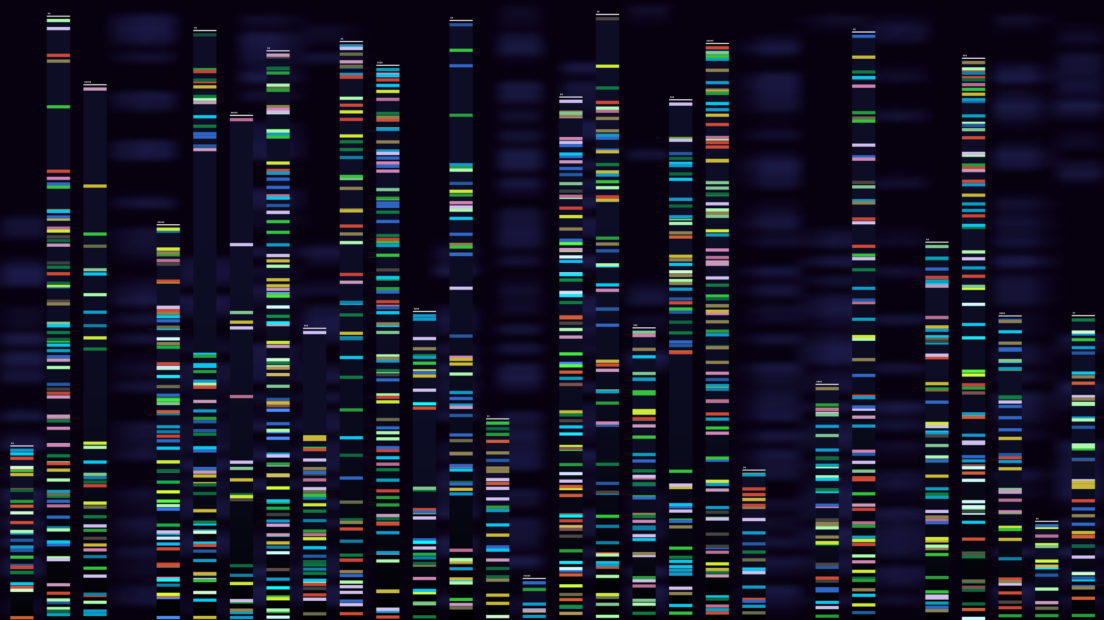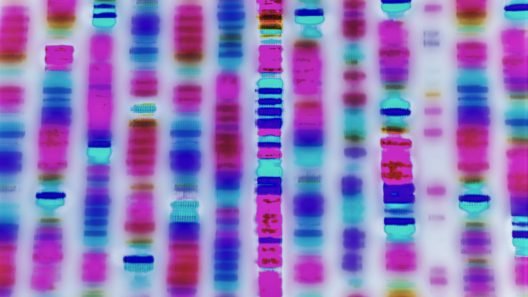AI and genomics futures
This joint project with the Nuffield Council on Bioethics explores how AI is transforming the capabilities and practice of genomic science.

DNA.I. – Early findings and emerging questions on the use of AI in genomics
AI-powered genomics has seen significant growth in the past decade, driven principally by advances in machine learning and deep learning, and has developed into a distinctive, specialised field. Our research finds that private-sector investment in companies working on AI-powered genomics has been substantial – and has mainly gone to companies working on data collection, drug discovery and precision medicine.
Project background
Artificial intelligence (AI) and genomics are set to be two of the most transformative technologies of the 21st century.
In recent years, these two technologies have become more and more intertwined, with many new advances in genomics having been made possible by the deployment of AI, and with genomic data increasingly being used and sought after to train AI systems.
The convergence of AI and genomics is poised to have a significant impact on medical research, healthcare, and societies across the globe. But it also presents new challenges for policymakers seeking to understand, regulate, and manage the societal effects of these technologies.
Considered in isolation, developments in AI and genomics pose profound questions concerning human agency, privacy, equality, bias, and power. When the two technologies are considered together, these questions become all the more complex, considering the number of different ways these technologies might develop and interact with one another and with outside factors.
AI and genomics futures is a joint project between the Ada Lovelace Institute and the Nuffield Council on Bioethics that seeks to methodically investigate the ethical issues arising from this convergence. The project uses a variety of methods, ranging from research, futures thinking, and public engagement, to explore how AI is transforming the capabilities and practice of genomic science, and what such a transformation could mean for people and society.
Project aims and research
Project aims
AI and genomics futures aims to investigate two broad questions concerning the development, proliferation, and impact of new and emerging genomic capabilities made possible by AI.
How are advances in artificial intelligence (and especially machine learning and deep learning) changing the capabilities, applications, and practice of genomic science?
The project aims to develop a clearer understanding of:
- What AI is enabling genomic science to do, or to do more effectively, and what improved or novel genomic capabilities AI might lead to in the future.
- Current, emerging, and predicted applications of these new capabilities.
- How, if at all, the increasing relevance of AI to genomics is changing the way genomic science is conducted, the data and expertise needed to conduct it, and the actors involved.
What might be the potential societal and political impacts of these trends, capabilities, and applications?
Focusing on a 5-10 year time horizon, the project will explore the potential impacts of new and emerging capabilities to sequence, analyse, and understand the human genome, and how these may affect:
- Different groups within society, and how the risks and benefits of these technologies are likely to be allocated.
- Current and future distributions of economic and political power.
- The delivery of healthcare; the boundary between healthcare and other domains of life; and the relationship between the citizen, state, and private sector in healthcare and broader public service provision.
It will also explore how these outcomes will be affected by uncertain factors, such as data protection norms and rules, ownership of genomic capacity, and advances in and public attitudes towards gene editing technologies.
Methodology
The project is divided into two phases:
- A research phase, which will explore the first overarching question through reviewing existing academic and grey literature, bibliometric analysis, engagement with experts, and horizon scanning exercises.
- An exploration phase, which will interrogate the second overarching question by employing futures mapping techniques, deliberative public engagement, and policy development and analysis.
AI and genomics futures Advisory Board
The AI and genomics futures Advisory Board is a panel of external experts providing advice on the structure, delivery and approach of the project
Image credit: Tetiana Lazunova
Related content

Call for input: new AI and genomics project
Call for input: new AI and genomics project

Minding the genomic data gap: COVID-19, genomics and health inequalities
The role of genomics in the data-driven pandemic response

New joint project with the Nuffield Council on Bioethics on AI and genomics futures
The Ada Lovelace Institute and the Nuffield Council on Bioethics will be working together on a new project on AI and genomics futures

AI and genomics futures Advisory Board
The AI and genomics futures Advisory Board is a panel of external experts providing advice on the structure, delivery and approach of the project.